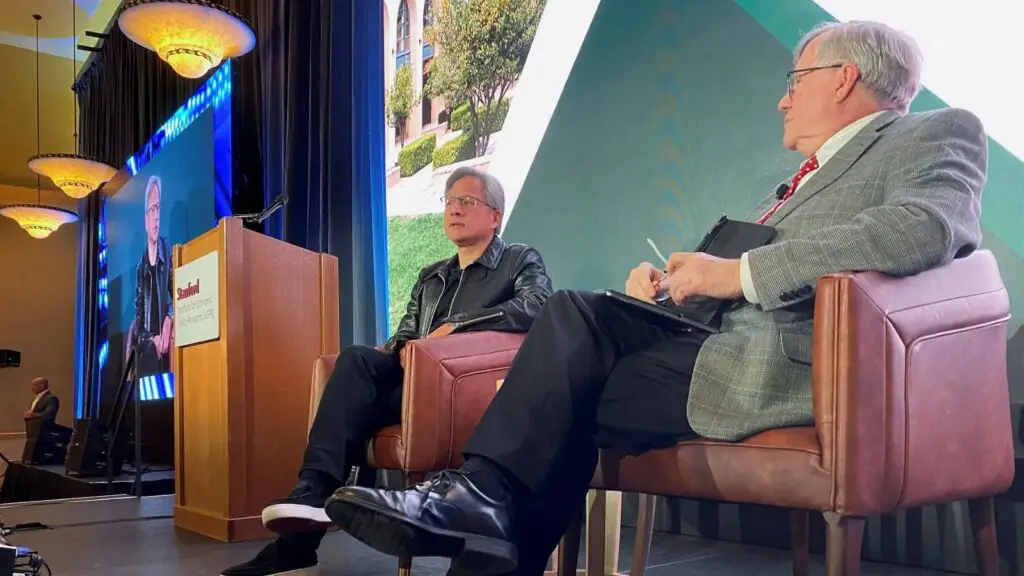This means that Nvidia’s CEO Jensen Huang made a daring statement on Friday, suggesting that AGI might be actualized within five years. As the CEO of the most widely recognized provider of AI chips such as those used in OpenAI’s ChatGPT systems, Huang discussed his views at an economic forum held at Stanford University.
When asked for the timeline of when this long-time desire of making computers with human-like thinking may be materialized, he insisted on specifying what it is. He indicated that in case AGI is evaluated based on its capacity to pass tests conducted by people then chances are that this technology may cross over this threshold any moment from now.
Huang says if all conceivable tests were assigned to an AI system and it was confronted with challenges which computer science industries face today, there could be great strides across all fields within just five years. On the other hand, current AI performance gives hopes because they can meet test requirements including legal bar exams although they are weak in specialized medical testing like gastroenterology. Nonetheless, Huang remains confident about AI’s capability to overcome such hurdles within five years as well.
Challenges and Perspectives on Achieving AGI
Despite the optimistic outlook presented by Huang, he acknowledges that there are differing viewpoints on the path to achieving AGI. Scientists continue to debate the intricacies of how human minds function, leading to varying definitions and timelines for attaining AGI.
Huang highlighted the engineering complexities associated with achieving AGI, noting the need for well-defined goals to guide progress effectively. This ongoing discourse underscores the intricate nature of developing AI systems that mimic human cognition.
Implications for Chip Factories in the AI Industry
Another critical aspect addressed by Huang pertains to the infrastructure supporting AI advancements, particularly the role of chip factories, known as “fabs,” in meeting the industry’s growing demands. Recent reports quoting OpenAI’s CEO Sam Altman suggest the necessity for an increase in fabs to support the burgeoning AI industry.
While acknowledging the need for additional fabs, Huang emphasized the parallel improvements in AI algorithms and processing capabilities. He highlighted the advancements in computing efficiency, projecting a staggering million-fold improvement over the next decade. This ongoing evolution in computing enhances the scalability of AI systems, thereby influencing the demand for chip production.
Amidst these technological advancements, Huang’s insights underscore the intricate interplay between hardware infrastructure, algorithmic innovations, and the evolving landscape of AI applications.
Conclusion
In conclusion, Nvidia’s CEO Jensen Huang’s projections for the arrival of artificial general intelligence within five years offer a glimpse into the ever-evolving realm of AI technology. As debates continue regarding the definition and timeline for achieving AGI, Huang’s remarks shed light on the complexities and possibilities within the AI industry.
The symbiotic relationship between hardware development and algorithmic enhancements underscores the multifaceted nature of AI progress. As the AI landscape continues to evolve, Huang’s vision for the future hints at a transformative era where human-like intelligence may soon be within reach.

